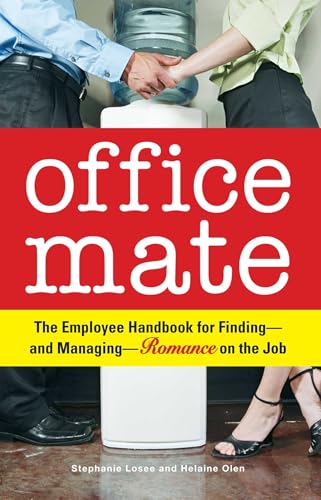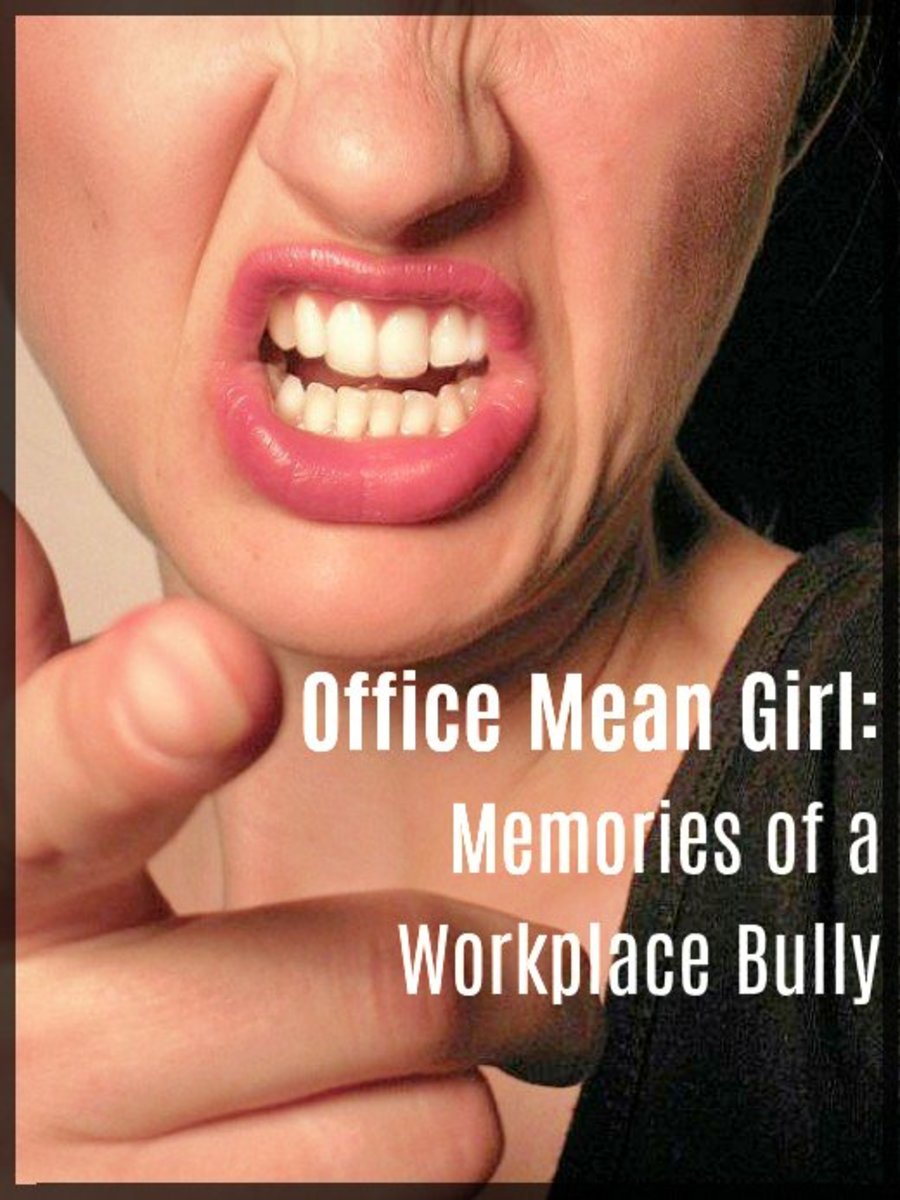Office Romances and The Hazards of Workplace Dating
If Work Is the Best Place to Get to Know Someone, Then Why Should I Not Date Someone From Work?
That's one of the best workplace and dating questions I've heard. Some dating advice columns in the past 50 years of newspaper clippings and old magazines I've looked through tells readers that the best way to get to know a potential dating partner or spouse is to work with that person in a volunteer or civic project or in an actual workplace. On an intuitive level, that makes sense, given the number of hours people work together in America - when they are employed (reference: Recession 2008 - 2010 job losses). When you observe another person for 30 or 40 hours a week, that helps deliver insight into his or her personality and character.
Other advice and workforce related columns are vehemently against dating coworkers, bosses, and subordinates. Given the availability of both types of advice, many people are confused about which to follow. Some workers feel that it is not the employer's concern, but employers purchase employees' time at work and have major authority over how that time is spent. One hopes a middle road compromise could be achieved.
Since the latter part of the 20th Century and the strengthening of EEO (Equal Employment Opportunity) regulations and enforcement programs, increasing numbers of workplace dating relationships have unfortunately transitioned to sexual harassment cases. I have witnessed a few of these that have destroyed employee morale to the point of company closure, but these are extreme casses in smaller companies.
Some individuals have decided that a potential sexual harassment or even sexual imposition case (whether real or falsified) is not worth the risk of dating someone at work. Others feel that workplace dating is unprofessional and choose not to participate in it as a matter of choice.

Reason #1: Written Policy
Read your Employee Manual immediately upon hire, if you have such a manual. Look for specifics about dating coworkers, bosses (a basis for American sexual harassment claims), and subordinates (another basis for sexual harassment claims). If the company prohibits dating among the supervisors and subordinates, then it is not wise to challenge that policy. Adhere to your manual and if the language is not clear enough, then consult with your HR representative.
Some companies are stricter yet and prohibit fraternization between all management and all the subordinates. This means that a manager and a subordinate may not associate socially in the workplace or outside of the workplace.
When I attended high school, school board regulations were strict enough to require that, when two teachers in my school married, the wife was transferred to another suburban school district. It was fortunate that each of these teachers owned a car, but their outlay for gasoline increased substantially. Thus, workplace dating can lead to large increases in daily expenses,
Some written company policies prohibit dating and even fraternization among coworkers (all the subordinates) as well as between management and subordinates. This is difficult to enforce and largely unreasonable, but I have seen some smaller companies attempt it with carying success rates.

Reason #2: Unwritten Policy
In a large corporate culture down to a family operated small business, etiquette and behavioral rules may be unwritten and you need to find out what these entail in your company. Ask a Human Resources representative or a supervisor you feel you can trust. If you cannot find a clear answer, then refrain from workplace dating, because the hazards are unknown.
Unwritten codes of conduct, including for dating, may be even more important in your company if you are a minority entering the workplace inhabited by a different majority - say, an American Protestant working abroad in a company that is largely a Muslim organization. In this case, familiarize yourself with the relevant cultural rules through your Embassy before reporting for work. They are prepared to help you in this regard. Then study your employee manual. Ask HR and/or your supervisor any question you have that are still unanswered.

Reason #3: Office Politics and Hysteria - Gossip
Some sort of politics is operational in every workplace - a pecking order and a system of Who's Who and Who's Not. Part of the usual workplace dynamic is workplace gossip. Even if you mind your own business and just work - or especially because of this trait - some few others may create rumors about you. If you date someone from work, the gossipers' ammunition has increased exponentially. It potentially can cause your termination from employment or interfere with your career advancement.
If rumors are that you as a subordinate are dating a supervisor or company owner, other subordinates may assert claims of favoritism as you progress in your career within the company. Accusations of sexual favors or sexual imposition at work can be insidious in destroying reputations and careers.
In a few cases, the employee you date will add to the ammunition with true or false stories of his/her own - a throwback to middle school behavior, perhaps. For additional information and advice, see the link below:
- Top 5 Ways to Avoid Office Politics and Hysteria
A new job in an office is a good way to start a career. Because of group dynamics, peer pressure, and office politics, it can also deteriorate into something lonely...

Reason #4: The Klingon Job Promotion System
If you recall the Klingon "job promotion" methodology on Star Trek®, you remember that K-cruiser promotions occurred by death. Specifically, one Klingon killed the next highest ranking superior and took the resulting vacancy.
While gaining the target's job is not the most frequent reason behind workplace dating, occasionally it is the reason. One coworker may approach another for dating with the hopes of undermining his or her work performance in order to have that person fired. I would especially advice against coworkers dating if they are in competition for the same job promotion.
More usually, a workplace dating pair breaks up and one or the other retaliates by attempting to undermine the other's work with distractions, arguments, gossip, false accusations, etc. The disagreement may lead to sexual harassment charges in the case of superior-subordinate dating.
In my state, some of the actions in a relationship - or a broken-up relationship - in the workplace may be objected to by other workers and used as grounds for sexual harassment and hostile work environment. This includes touching in front of other workers, public displays of affection, "lovers' quarrels", and a number of others. If one of the workers puts the worksite "On Notice" by formally announcing that he or she does not want to hear any mention of or see any sex, sexual jokes, double entendres, discussions about dating or relationships, etc. etc.; then that rule is be followed unless and until the announcer breaks it himself/herself.
So, if you date a coworker, there is a chance that you might be sued for sexual harassment by other workers.

Reason #5: Other Ulterior Motives
Boston Legal was the first television series in my view that was so outrageous that viewers could immediately recognize that it was an over-the-top parody of office politics and dating, woven in between serious topics. I'm collecting the full-season DVDs and feel they are better than classic cartoons -- in a drama, many of the situations would be offensive, but in Boston Legal, they are hilarious.
Real life is not always easy to interpret as such TV shows.
Ulterior motives can enter the approach of coworkers, bosses, and subordinates to other employees for dating, sex, and/or romance. Consider the statement of one of my first anthropology professors: "There is no such thing as love; people only use one another for various purposes." That brought a volcanic reaction from some students, but many humans do need other humans. People band together for a lot of reasons in 2's, 3's, families, villages, and nations - survival, food gathering, protection, reproduction, status provided by the best mates, etc. The next time a coworker approaches you for a romantic or sexual liason, think about the possible motivations for it. Some examples:
POWER AND CONTROL
In one small company that employed me, we worked with an International coworker that felt he could control the company by having relations with all the female workers and abandoning them, with the envisioned result that all the women would quit. In cutting to the short summary, few of the females succumbed, he was fired, and company revenues more than doubled the first year thereafter. I hope you never encounter a similar situation.
SECONDARY GAIN
It is possible that some coworkers date another that is a hard worker and produces top results, in order to benefit from that association. The person may believe that he or she will receive raises and promotions for being associated with the top producer on the way up the corporate ladder - like a sort of groupie, perhaps.
If you have noticed other ulterior motives in workplace dating, please feel free to share them in the Comments section below. We'd like to see them.
Work is stranger than fiction.
it may be possible to meet someone at work and have a successful long-term relationship, even marriage, with that someone, but I think it rare. If you are such a couple, please share that in Comments as well.
Workplace Dating: A Success for One Couple In Government
- Congresswoman Gabrielle Giffords and Astronaut Mark Kelly's Love Story
- Open Head Brain Trauma Injury and Recovery - JFK and...
Upon hearing the words that Representative [D-Arizona] Gabrielle Giffords had been shot in the head, I flashed back to the...

© 2011 Patty Inglish MS MPH









